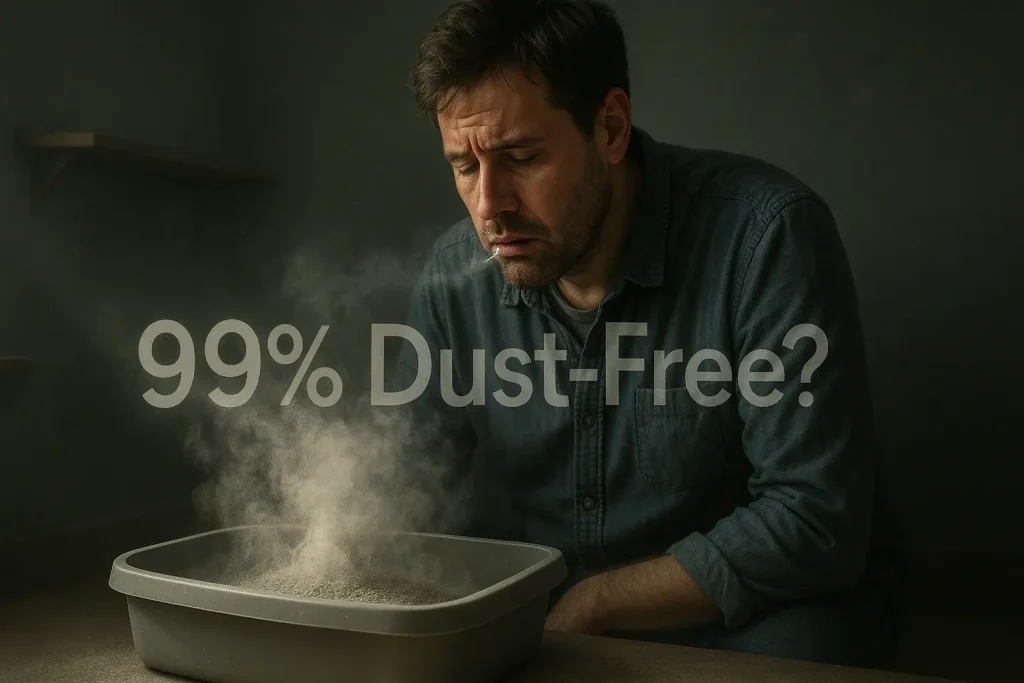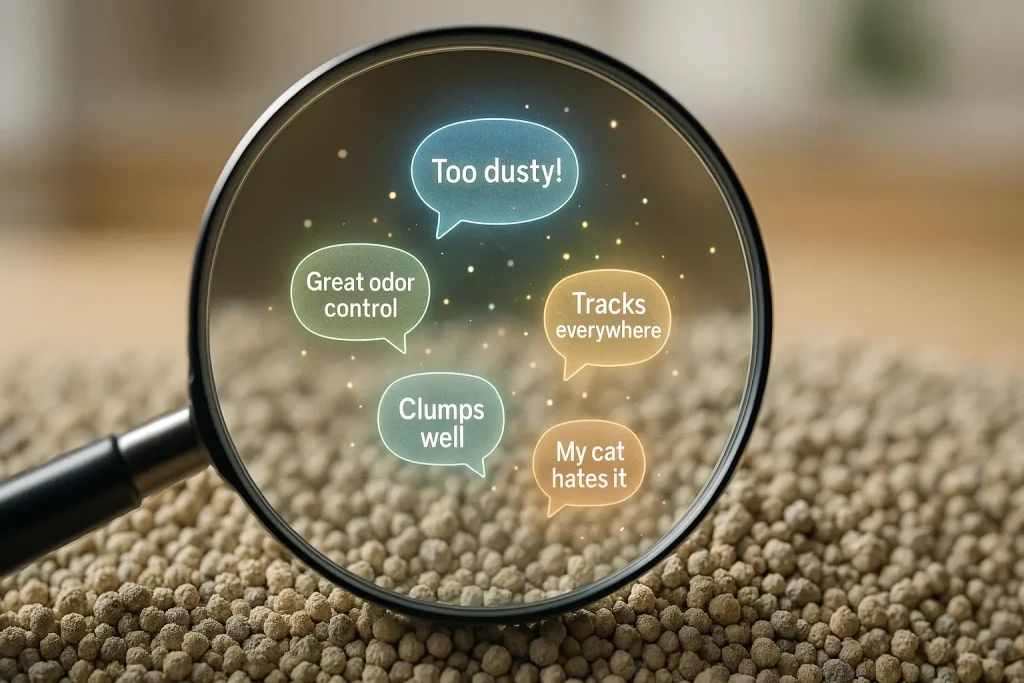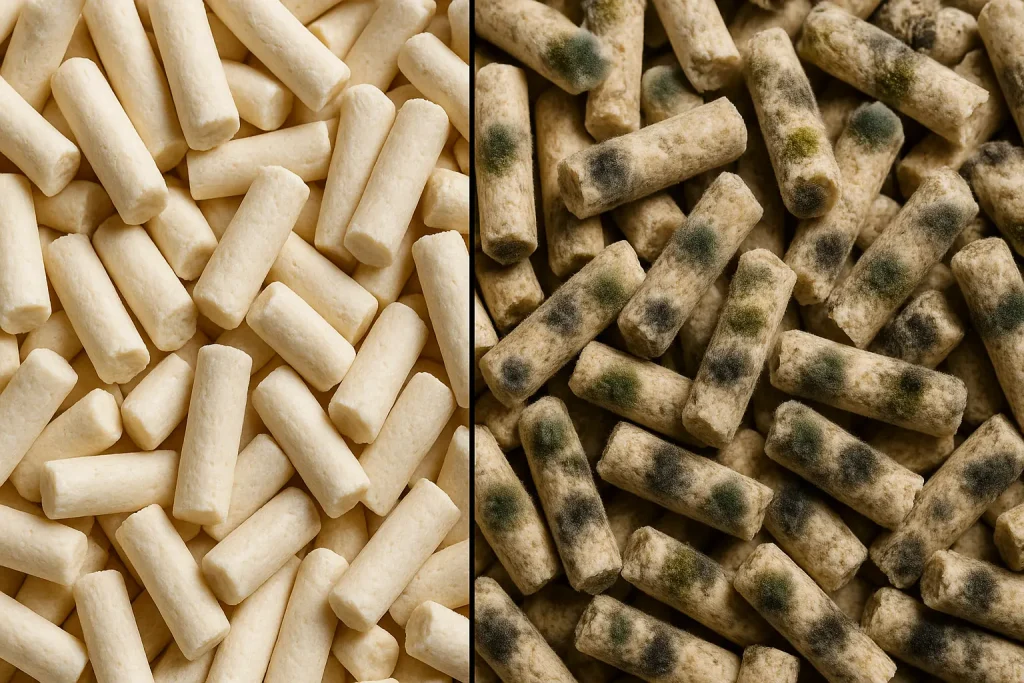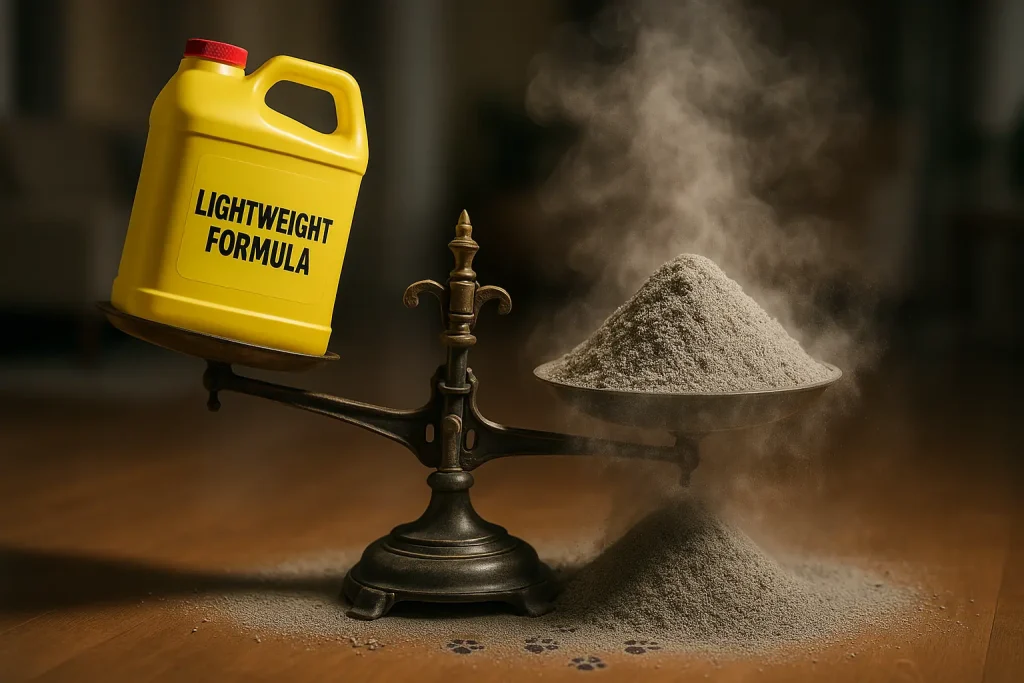Why Your Cat Litter Donation Can Be a Game-Changer for Shelters
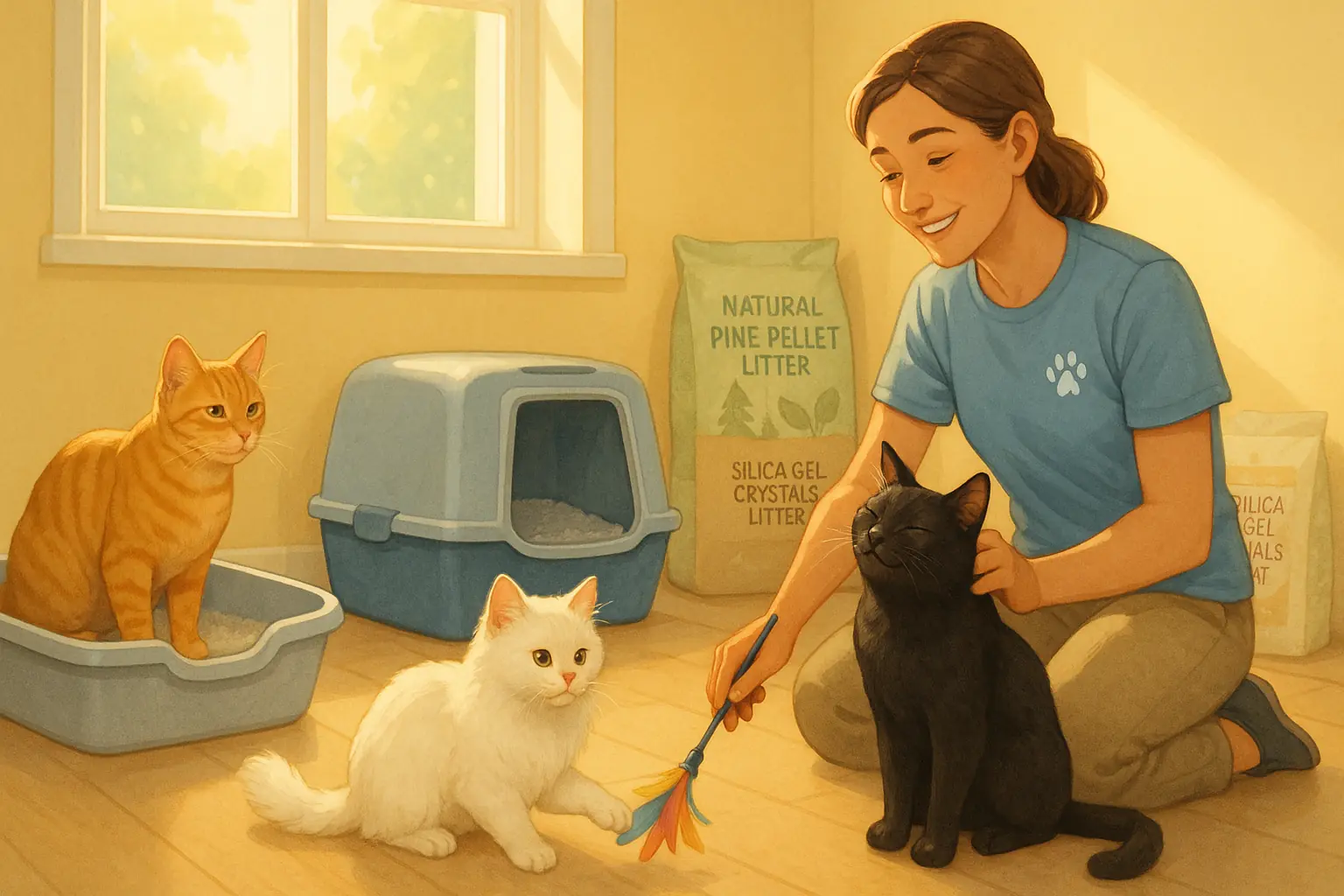
Cat litter donations profoundly impact shelter operations. Many people simply don't see this need. Shelters, as their staff will tell you, face a constant, overwhelming demand for litter. It's a huge, relentless operational expense. Picture a shelter manager, deeply concerned, reviewing their tight budget. Food costs are high. Vet bills keep mounting. And then there's the cat litter. So much litter is needed daily. Your donated bag provides immediate, tangible relief. That single bag can free up precious funds. Perhaps for a senior cat's vital medication. Or an extra warm blanket. It truly helps.
The right kind of cat litter directly impacts shelter cat well-being. This isn't a small detail; it's fundamental. Consistent, clean litter reduces feline stress significantly, a common observation from experienced volunteers. Think about a newly arrived cat. Often scared. Utterly confused. A clean, inviting litter box offers a small zone of comfort. It helps that cat feel a bit more secure. Good hygiene, supported by ample litter, also prevents illness spread. This is absolutely critical in potentially crowded shelter environments. Your donation supports healthier, happier cats. Fewer vet visits. Less daily worry for dedicated staff.
Clean litter boxes also boost a cat's chances of adoption. It’s a surprising factor for many potential adopters. A cat comfortable and clean in its temporary space appears far more adoptable. Imagine a family visiting the shelter. They see a cat confidently using its pristine litter area. No unpleasant mess. No lingering odor. That cat looks content, healthy. It more easily projects the image of a future family member. This small environmental detail makes a huge difference. It helps deserving cats find their forever homes faster.
Thoughtful cat litter donations truly maximize your generous impact. Shelter workers frequently emphasize that they often need specific litter types. Young kittens, for instance, may require non-clumping formulas. Some rescued cats have skin or respiratory sensitivities. Donating what's genuinely needed by that specific shelter prevents waste. It allows them to stretch their precious, often strained, resources further. Consider this ripple effect: your well-chosen bag means staff spend less time managing unsuitable or insufficient litter. This frees up more time for socializing timid cats. More funds become available for essential enrichment. Or for vital spay/neuter programs. That one bag of litter? Its benefits ripple outwards. It helps not just one cat, but the entire shelter community. A small act. A big, positive change. Always ask your local shelter about their current litter preferences. This makes your gift even more powerful.
Shelter Wish Lists vs. Reality: What Litter Do They Actually Use?
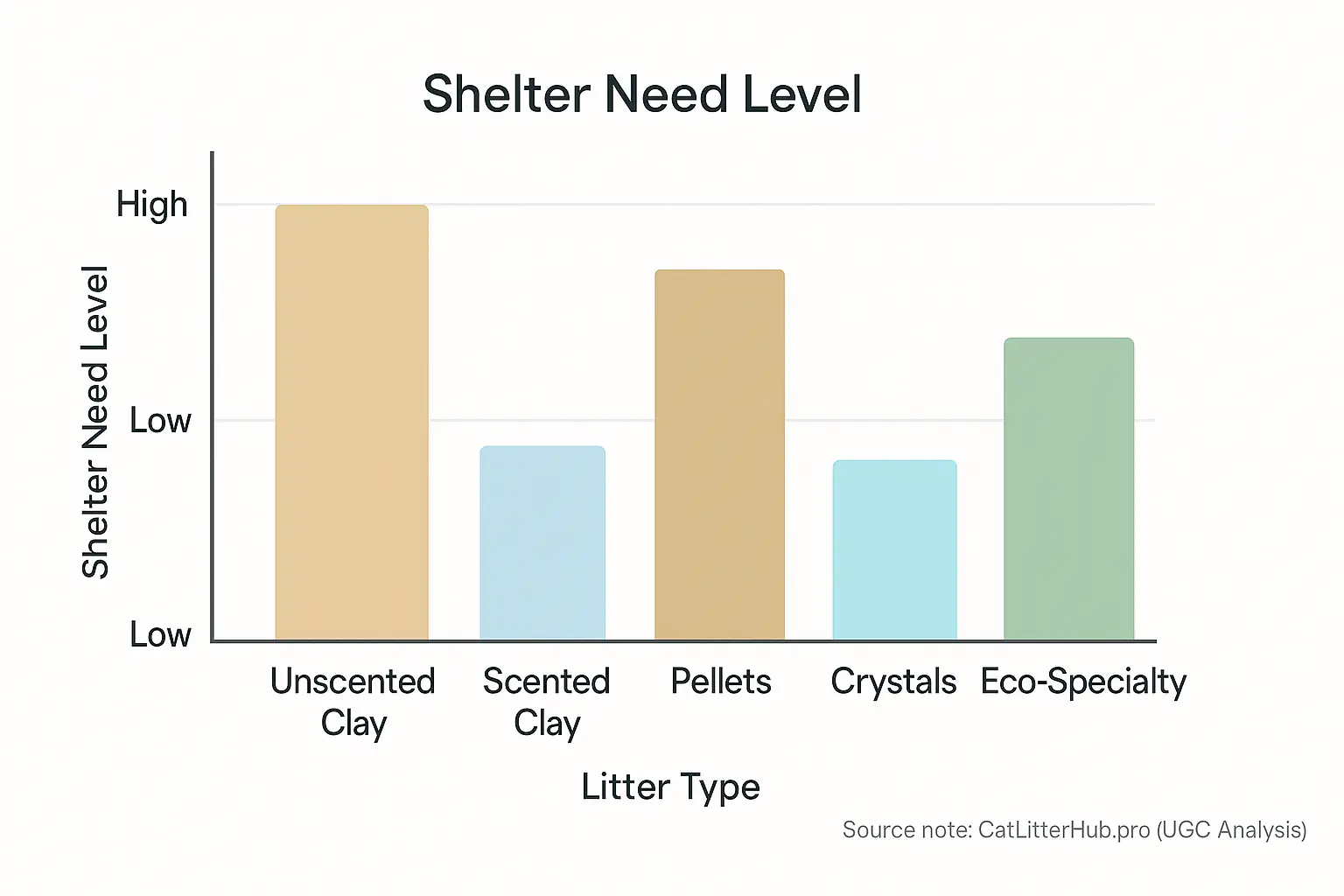
Thinking of donating litter to your local shelter? Wonderful. Many shelters desperately need this essential supply. But what kind do they really want? Our deep dive into shelter feedback and volunteer insights reveals some surprising truths. The recurring theme? Practicality trumps prestige every single time.
Shelter staff often wish donors knew one key thing. That beautiful, artisanal, lavender-infused litter? It looks lovely. It feels generous. The truth? Shelters often sigh. "One bag of that costs what we spend on five large bags of basic, unscented clumping clay," a volunteer might confide. Unscented clumping clay litter is the workhorse. Most cats accept it readily. Volunteers find it easiest for the endless cycle of scooping. Cost-effectiveness is absolutely paramount when caring for many animals. This is their daily reality.
Heavily scented litters? Generally a bad idea for shelters. Cats in new, often stressful, environments are highly sensitive. Their noses are powerful. What smells "fresh" to us can be overwhelming, even offensive, to them. "We had a cat avoid the box entirely last week," one shelter worker told us, "all because of a 'spring rain' scented donation." The result is often out-of-box urination. This creates more stress for the cat. It means more intensive cleaning for already busy staff. Plain. Unscented. That’s the preference.
What about those opened bags of litter at your home? Or specialty pellet litters? Many shelters gratefully accept opened bags, provided the litter is clean, dry, and clearly identified. Waste not, want not. But always call them first to confirm their policy. As for pellet or other alternative litters, these usually serve very specific needs, like for post-surgical cats. They are not universally suitable. Donating these types without prior confirmation can sometimes create storage or usability challenges for the shelter. The clear message from shelters: "Ask us what helps most. We'll tell you."
More Than Just Litter: Other Supplies That Make a Huge Difference
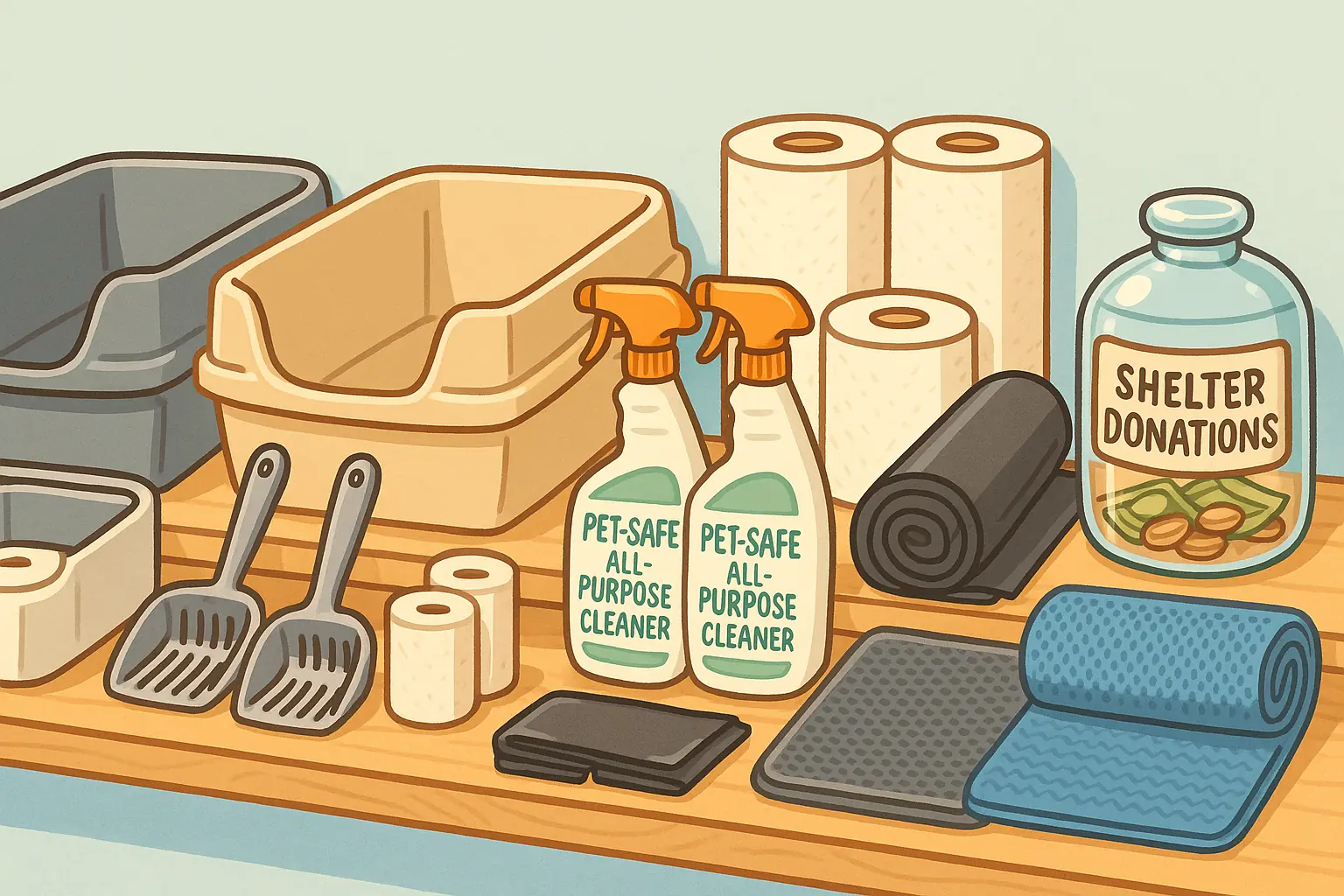
Shelters constantly need durable litter boxes. High cat traffic means boxes endure intense daily use. Frequent sanitization demands easily cleaned, non-porous surfaces. Imagine a volunteer facing a mountain of cleaning. A solid, new litter box provides a clean space for a cat and eases that volunteer's burden. Sturdy litter scoops are also critical. Flimsy ones snap. Volunteers report strong scoops make a real difference in their day. These items are shelter workhorses.
Pet-safe cleaning supplies keep shelters running. Disinfectants simply vanish. Heavy-duty trash bags are always on the wish list. Paper towels? Shelters consume them by the case. Maintaining hygiene across many cat enclosures uses these items incredibly fast. Imagine the relief when a large donation of pet-safe cleaner arrives. It means healthier cats, safer volunteers. This is the unseen, daily effort for true animal well-being.
Litter mats offer surprising efficiency. Placed strategically, these mats catch stray granules. This simple step keeps individual cat areas tidier. Tidier spaces mean volunteers spend less time sweeping. More time for cats. It’s a small change bringing real workload relief. Now, consider monetary support. Physical items are always appreciated. Yet, cash donations give shelters vital purchasing power. A sudden need for specific kitten milk? Or an emergency vet visit? Flexible funds meet these urgent needs directly. This ensures no cat goes without critical care.
Making Your Donation Count: Practical Steps for Maximum Impact
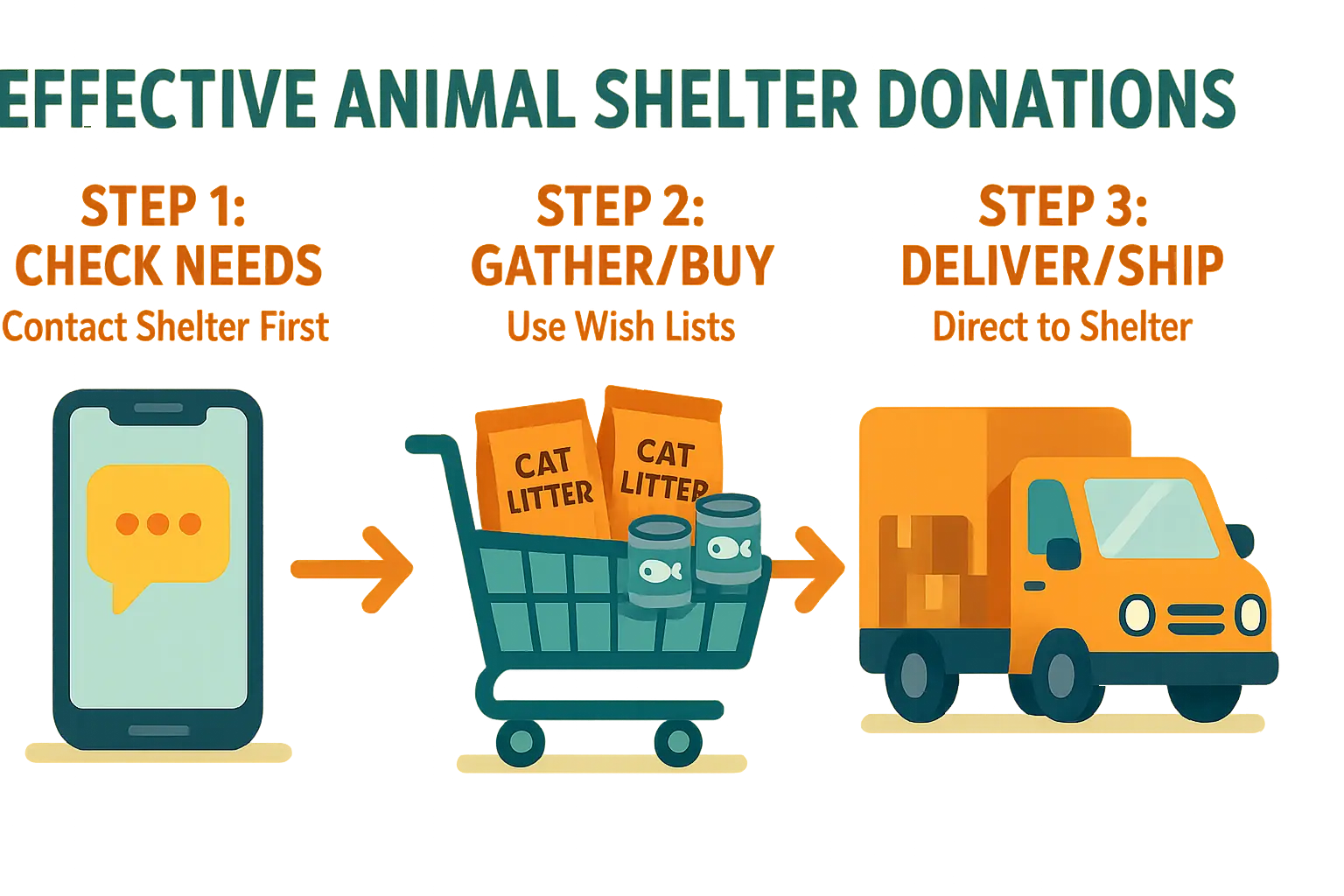
You want your donation to make a real difference. Good. The first step is crucial. Always contact the specific shelter before you donate anything. Call them. Check their website or social media. This confirms their most urgent needs right now. Resist that urge to just show up with bags of stuff! A quick check saves everyone. 'We were drowning in food last month, but desperate for litter,' one shelter director told our network. Knowing their current needs is key for maximum impact.
Consider the power of collective action. Organizing a donation drive can greatly amplify your efforts. Rally your neighborhood. Involve your workplace. Even a school group can gather a significant amount of high-need items. Many hands make light work, and shelters often receive essential bulk supplies this way. This community approach makes a substantial, positive impact. It helps more animals. Plain truth.
Online wish lists offer another smart path for targeted giving. Many shelters maintain these lists on platforms like Amazon or Chewy. You can purchase items directly. The platform ships them straight to the shelter. This method means they receive exactly what they require. No guesswork. It’s incredibly convenient for busy shelter staff and guarantees your donation meets a specific, verified need. Think specific formulas or litter types for sensitive cats.
Physical donations are not the only way to help. Your time can be an invaluable gift. Inquire about volunteering opportunities at your local shelter. They often need assistance with cleaning. Socializing cats is vital for their well-being and adoptability. Even administrative tasks help operations run smoothly. An extra pair of dedicated hands provides immense support. This contribution truly matters to the animals and the people who care for them.
The 'Donation Don'ts': Items That Can Create More Work for Shelters
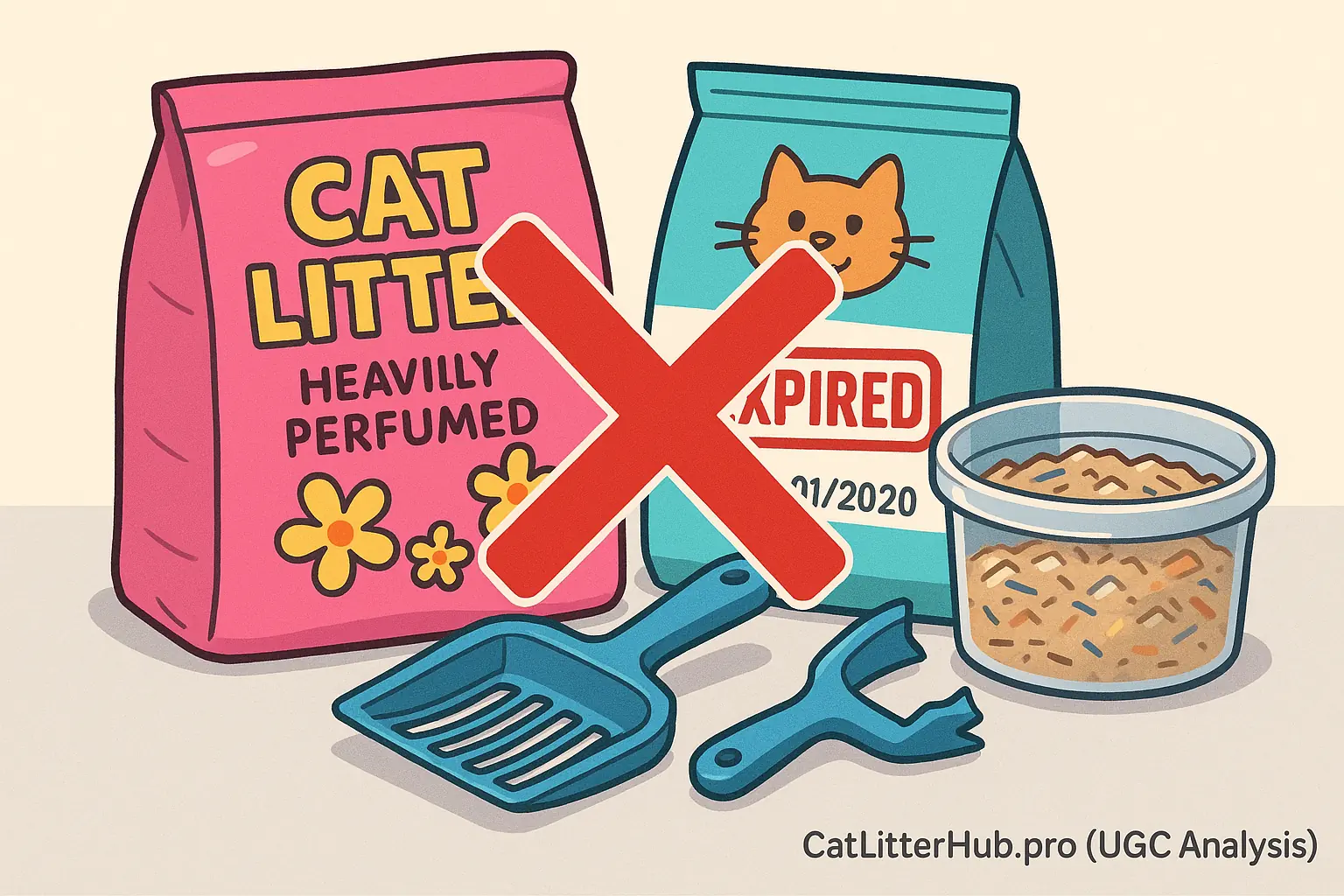
Your generosity truly supports shelter animals. Many cat owners want to help local shelters. Understanding shelter needs prevents accidental burdens. Avoiding certain items helps shelters dedicate resources directly to animal care. This is how you truly help them help the animals.
Heavily scented or dyed litters often cause problems. That "ocean breeze" fragrance might appeal to you. For a stressed shelter cat, it can be overwhelming. Respiratory irritation is a genuine concern. Litter box aversion becomes a sudden issue. "We had three cats start sneezing uncontrollably with one new scented donation," a shelter technician shared. "Another simply refused to use the bright pink, perfumed litter." Unscented clay or natural litters are consistently the safest, most accepted choices for shelter environments.
Expired products and damaged goods also create extra work. Old litter loses effectiveness. Expired food can be unsafe. Shelters must then spend time and money on disposal. Think about it. Would you use a seven-year-old bag of litter for your own cat? "We received a pallet of food past its use-by date last month," one shelter director told community members. "Disposing of it properly cost us nearly a hundred dollars." Similarly, dirty or broken items like cracked carriers or soiled bedding require volunteer time for cleaning or discarding. That time is precious. Items should be clean. They must be usable.
Unsolicited "alternative" litters can also present challenges. Shelters often standardize litter for health and behavioral monitoring. Introducing unknown homemade or niche litters complicates this system. Cats may reject unfamiliar textures or scents. Staff cannot always verify the safety or absorbency of unexpected donations. "A well-meaning donor brought in bags of shredded newspaper," a volunteer recounted. "Unfortunately, it did little for odor and our cats just scattered it everywhere." Always check a shelter's specific wish list. This ensures your donation is exactly what they need.



